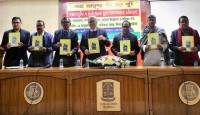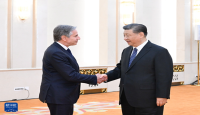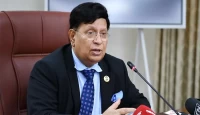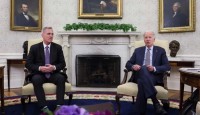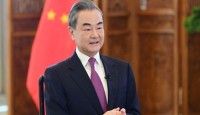New York, 03August 2023:
"In the face of conflict-induced global food insecurity, a fragmented approach will not suffice. We
must come together in a collective endeavor to address this crisis"-said Ambassador Muhammad Abdul
Muhith, Permanent Representative of Bangladesh to the United Nations in New York, during his address
today at the Security Council's open debate on Famine and Conflict-induced Global Food Insecurity.
Citing the devastating impact of the ongoing conflicts and climate change on global food security,
Ambassador Muhith shed light on the various measures undertaken by the government of Bangladesh to
address food insecurity at both the national and international levels. He pointed out that to tackle the conflict-
driven global food crisis, Bangladesh government has taken various fiscal and policy measures and
prioritized investments in agri-food systems. Furthermore, he mentioned that Prime Minister Sheikh Hasina
has called upon all the citizens to actively participate in homegrown food production practices and cultivate
unused lands in every household.
To bolster collective action against food insecurity, Ambassador Muhith stressed the importance of
addressing underlying factors that affect food prices and access to food during conflicts. In this regard, he
pledged full support for the Secretary-General's call to keep markets open, remove unnecessary export
restrictions, and release food reserves to improve food supply. He also underscored the urgency of renewing
the 'Black Sea Grain Initiative' to ensure stable food supplies. Moreover, he emphasized the need for
increased international cooperation, including South-South cooperation, climate financing, and technology
transfer, to support vulnerable countries like Bangladesh in mitigating the adverse impacts of climate change
on food security.
Strongly denouncing the use of famine and starvation as weapons of war, Ambassador Muhith called
upon all member states to refrain from employing starvation as a tactic of warfare and also urged conflicting
parties to adhere to international law and humanitarian principles.
Drawing the attention of the council to the protracted Rohingya crisis and the funding shortfall in the
humanitarian response plan for the Rohingya, Ambassador Muhith urged the Security Council to pay
immediate attention to the situation in Myanmar. He appealed for collective efforts to create a conducive
environment in the country to enable safe and sustainable repatriation of the Rohingyas. He called upon the
international community to continue providing adequate funding to support the displaced Rohingyas pending
their return.




